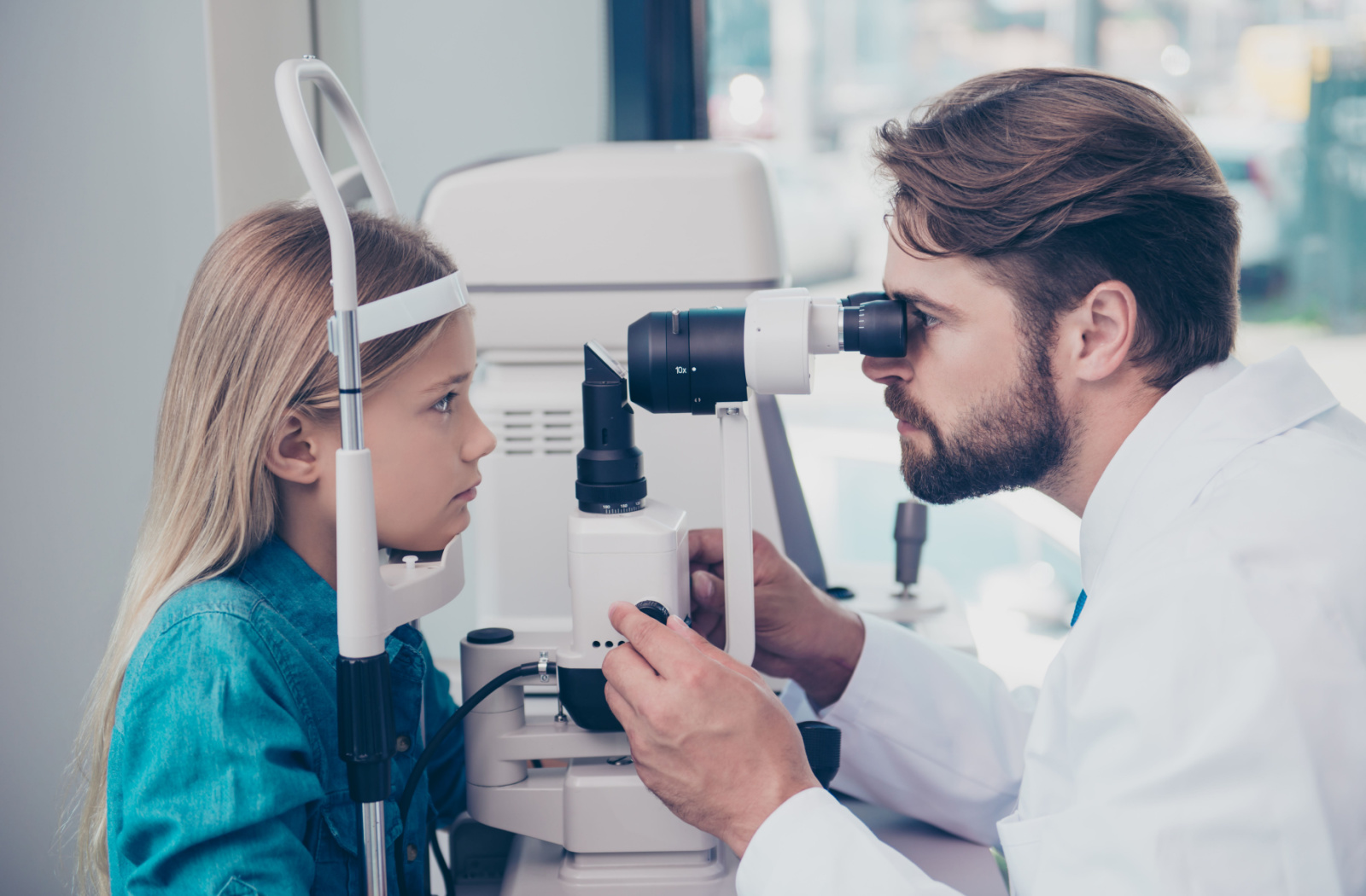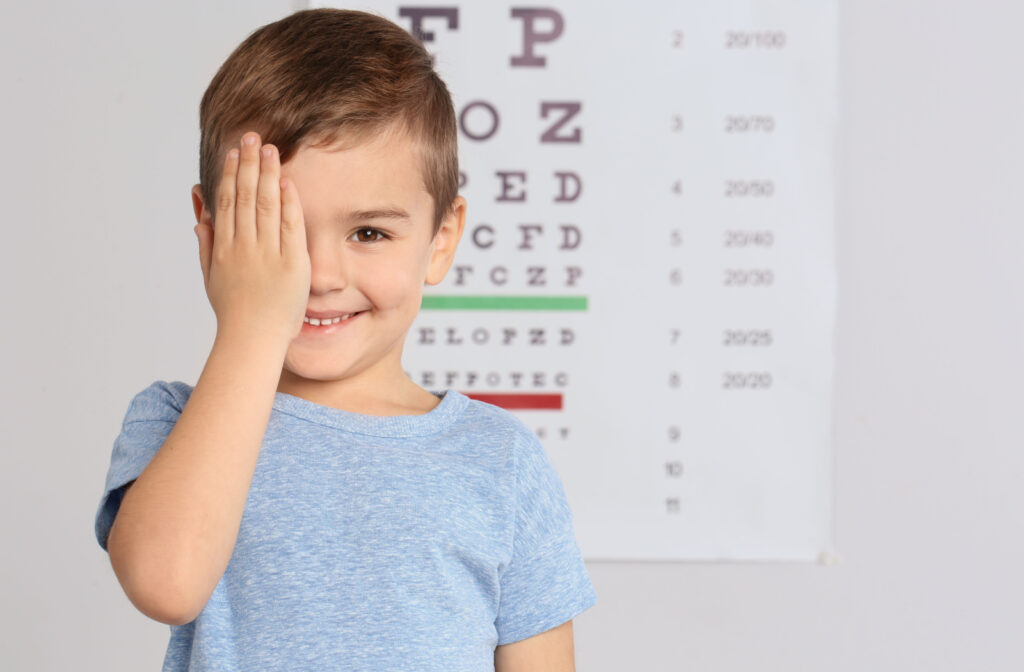The eye is one of the most crucial organs in a human body. It is responsible for providing us with sight, which allows us to take in the world around us.
Eye exams are essential for both adults and children since it helps identify any problems in the eye. However, sometimes it is necessary to dilate the eyes for a better examination of the retina and optic nerve, or if the patient requires a diabetic eye exam. It is also sometimes beneficial to determine a more accurate glasses prescription.
Dilating a child’s eyes is a medical procedure that involves the application of eye drops to enlarge the pupils, facilitating a more thorough examination of the eyes. While this process might initially seem intimidating for parents, it serves a critical purpose in evaluating and safeguarding a child’s visual health.
Whether it is necessary to dilate a child’s eyes or not is based on the reason for the eye exam and the parts of the eye the doctor is trying to examine. Additionally, Children in particular may not be able to communicate what they are experiencing effectively, making dilation of their eyes all the more important.
Is Eye Dilation for Children Safe?
Parents often wonder whether it is safe to dilate their child’s eyes. While it is natural to be concerned about the safety of any medical procedure, dilating a child’s eyes is safe.
The drops used to dilate the pupils do not cause any harm to the eye or the child. However, most children may experience temporary side effects like blurred vision and sensitivity to light after dilation. These symptoms usually disappear within a few hours.
Diagnostic Precision
The process of dilation offers eye care professionals a clearer and more detailed view of the various structures within the eye, including the retina and optic nerve.
This enhanced visibility is particularly helpful in the detection of conditions such as retinal disorders and glaucoma, which may not be readily apparent during a standard eye exam.
The ability to examine these structures in detail allows for a more precise diagnosis and, subsequently, a more tailored treatment plan.
Dilating the pupils also allows the eye doctor to see the peripheral areas of the retina, which is impossible to visualize without dilation. Thus, dilating the pupils can help detect eye conditions in children that may otherwise be missed.
Early Detection of Eye Conditions
Children may not always communicate visual challenges or discomfort effectively. By incorporating dilation into the examination process, eye care professionals can conduct a more thorough and comprehensive assessment.
This ensures that no potential issues, whether related to refractive errors, structural abnormalities, or other conditions, go unnoticed. Dilation can become an invaluable tool in identifying subtle signs of eye diseases or refractive errors that, if left unattended, could potentially lead to more serious complications.
The early detection enabled by dilation often translates to more effective and less invasive interventions, emphasizing the preventive aspect of this procedure.
Assessment of Refractive Errors
Dilating a child’s eyes may play a pivotal role in obtaining accurate measurements of refractive errors such as nearsightedness, farsightedness, and astigmatism. This may be necessary for prescribing corrective lenses or other vision therapies that can optimize a child’s visual development.
The detailed assessment afforded by dilation ensures that the prescribed interventions precisely address the individual needs of the child, promoting optimal visual acuity.
Monitoring Eye Health
Regular eye examinations, including dilation when deemed necessary, are critical for monitoring a child’s eye health over time. This proactive approach enables the timely identification of any emerging issues, ensuring that a child’s vision is developing appropriately.
By incorporating dilation into routine eye care, professionals can effectively track changes in eye health and respond promptly to any deviations from the expected developmental trajectory.

Takeaways on Dilating a Child’s Eyes
The decision to dilate a child’s eyes is not just a procedural formality; it is sometimes a fundamental component of comprehensive pediatric eye care.
The benefits extend beyond the initial apprehensions that parents may have, as early detection, accurate diagnosis, and proactive monitoring are integral to a child’s overall well-being and visual health.
Regular eye examinations, including dilation when recommended by eye care professionals, play a pivotal role in safeguarding a child’s vision and ensuring optimal eye health throughout their formative years.
Children develop at a rapid pace, and their visual system is no exception. Regular eye exams, including dilation, can ensure that the child’s eye develops correctly and can detect any issues early on. Embracing the importance of eye dilation is a proactive step towards providing children with the best possible foundation for a lifetime of healthy vision.At Signature Eye Care, we offer a safe and supportive environment for your children. Book your child in for an eye exam regularly to ensure that their vision is kept performing at its best.



